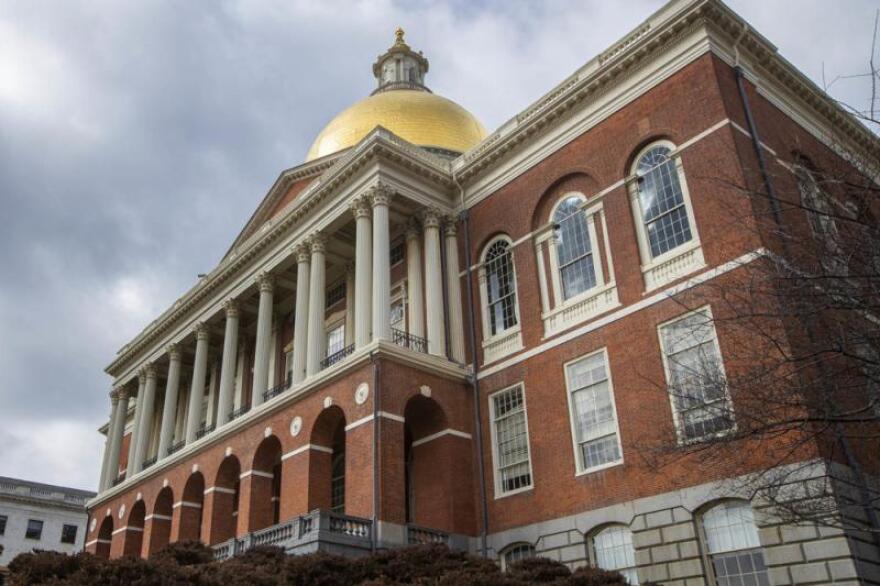A state budget for fiscal year 2024 is almost completely in the books, and attention will now turn back in time to the state's uncertain financial footing at the end of the preceding year.
As Gov. Maura Healey approved Wednesday a fiscal year 2024 budget that raises spending about 6.2% over the version enacted last summer, her budget chief signaled that the administration will release a summary of year-end tax collections for fiscal year 2023 "later this week."
There's a lot riding on the report: how much Massachusetts collected in June, the final month of FY23, will determine whether elected officials have a surplus they get to spend or face a deficit they need to plug.
Healey and Administration and Finance Secretary Matt Gorzkowicz would not say Wednesday if they expect the final FY23 number to land in the black or in the red.
"We'll be talking about FY23 later this week," Gorzkowicz replied when asked if the state experienced a revenue shortfall in the spending cycle that ended June 30. "We'll be releasing the final FY23 numbers, and the process to close out FY23 has already started with my reaching out to the [legislative] chairs and talking about that in partnership with them. So there's more to come."
"We'll give you the numbers real-time," Healey, who said the prior year's performance "always" impacts deliberations about the next budget, added.
State tax revenues tumbled well below expectations in April and rebounded somewhat in May, muddying the year-end outlook. Through the first 11 months of the fiscal year, cumulative state tax collections were running $583 million behind the benchmarks used to craft the fiscal 2023 budget, after adjusting for the net impact of a pass-through entity excise.
Healey and her deputies have signaled that they are optimistic they can afford the spending increase now approved for FY24 as well as a pending tax relief package, even if FY23 ends with a shortfall.
The administration previously pointed to a "transitional escrow" account, which was created using unspent surplus revenues from previous years and federal pandemic aid, as one way to close any gaps. That account has a balance of about $1.3 billion, an official said Wednesday.
Lawmakers proposed using $205 million from that transitional escrow account as part of the $56 billion annual budget in FY24, but Healey on Wednesday vetoed the attempted maneuver.
"We took this action because we felt like at this time, it was the right thing to do to not use one-time funding for programs that would have a longer shelf life," Healey told reporters.
She added in her official veto notice that using one-time resources like the transitional escrow account to pay for ongoing spending "is not considered a best practice and may be viewed negatively by rating agencies when assessing the Commonwealth's fiscal strength."
"One-time transitional funds are transitory. They were built up through several years of significant surplus," Healey wrote in her budget signing letter. "They can and should be used to support one-time needs, and we look forward to working with the Legislature to identify transformational investments that can be made with these funds."
Healey paired her rejection of the one-time funding with vetoes of $273 million in spending, or $205 million after accounting for federal MassHealth reimbursements that offset the total reduction.
Beacon Hill has been steadily building up its reserves beyond the transitional escrow account.
Healey wrote in her signing letter that the administration anticipates collecting enough revenues from capital gains taxes to sock away $525 million, pushing the balance of the "rainy day" stabilization fund to more than $8.5 billion.




